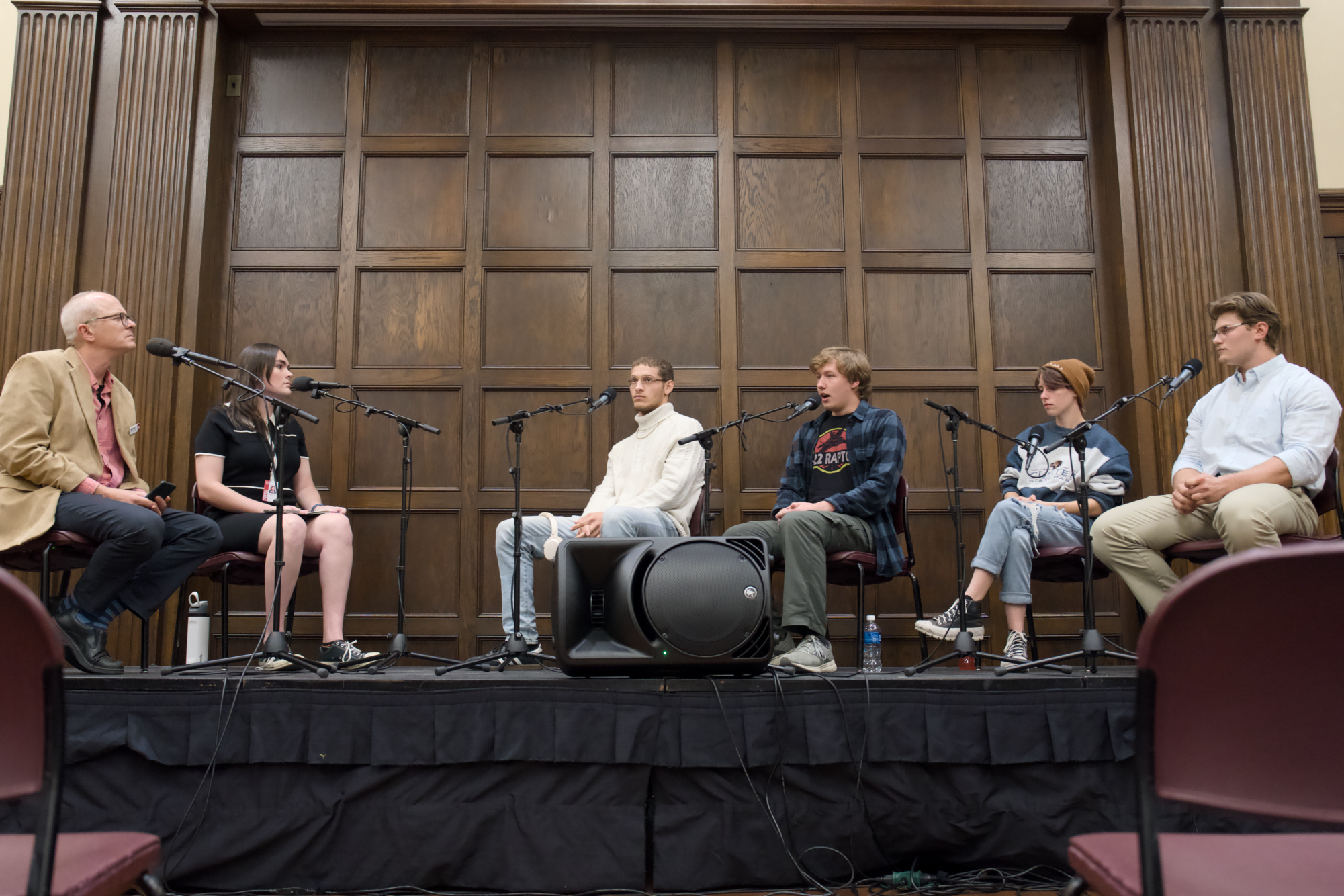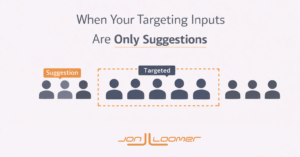Iowa Public Radio brought its weekly politics day panel, “River to River,” to the Memorial Union this Thursday. The special traveling episode was hosted by Ben Kieffer and Cleo Westin, senior in journalism and mass communication and editor-in-chief of the Iowa State Daily.
The discussion aimed to provide insight into Gen Z voters’ hopes and concerns regarding the upcoming election.
“A civil political conversation is what we’re hoping for, because we’ve got a wonderfully diverse group of students here who have very interesting backgrounds,” Kieffer said.
Speaking first was Jemma Bullock, executive director of the Iowa Queer Student Alliance. Bullock said the most important issues to them this election were civil rights issues, specifically “LGBTQ+ rights, and making sure that we advocate for minorities.”
Both of Bullock’s parents are civil rights attorneys, which they claim has always been a big part of their life.
“I think that I’m voting for, and this might seem drastic and extreme, but life or death,” Bullock said. “Because I have heard what some Republicans or more conservative people are saying about the queer community and the ways that they want to approach including them or disincluding them in our society.”
Andrew Storey, treasurer of ISU Turning Point USA, said some of the major issues he’s focusing on coming into the election are immigration and the economy.
“Immigration helps with making the economic issues a lot harder because we have more people here with less jobs, that makes it harder for Americans to find opportunities to cover higher costs of living and higher costs of housing,” Storey said.

Giorgi Gagua, senior in history and education, said his main issues are the protection of the Second Amendment, mental health issues in the country and reorganizing the social welfare system.
The son of immigrants from the former Soviet Union, Giorgi expressed that his view on gun laws was passed down from stories his father told him about being invaded by the Red Army.
“That type of story that I was told really influenced me on the gun issues because he specifically mentioned that ‘If we had some way to defend ourselves, it would be different,’” Gagua said.
Avrom Bailey, president of the ISU Robotics Club, said he was not planning to vote before the Kamala Harris and Donald Trump presidential debate. He said Harris won him over with her affordable housing plan.
“I was very solid, not going to vote,” Bailey said. “I was thinking to myself, our system’s broken, and I feel like me voting would be just reinforcing something that I already know for the past 50 years that got us here. It hasn’t worked.”
“The most dangerous thing anyone can do to themself is put themselves in their own echo chamber,” Gagua said to finish the panel. “We have to break that and just talk to people.”
The second half of the panel brought out four new speakers, again focusing on what issues they hope to solve via the election and discussing the benefits of a proposed “ranked-choice voting system.”
Ranked choice voting is a process in which citizens cast votes for three different candidates on one ballot, with the candidate with the fewest votes getting eliminated and the candidate with more than 50% of the votes getting elected.
Katie Babb, a Grinnell student and intern at Better Ballot Iowa, advocated for the new voting system, highlighting its ability to allow multiple candidates to run without the fear of splitting the vote in their party.
“Who wants to vote for the lesser of two evils in a climate that’s so toxic and polarizing?” Babb said. “We just want to change, and so a lot of Iowans can get behind that.”
Babb also explained how ranked choice voting makes the political climate less polarized.
“Another reason I like ranked choice voting is because it reduces negative campaigning, so if I’m running as a candidate and I can’t be your first choice, I want to be your second or third choice, and that doesn’t happen if I’m trash talking and saying awful things about your first choice,” Babb said.
Though members of the panel differed in viewpoints regarding taxation, housing and abortion, a majority shared agreement that the current two-party system in our country is lacking and doesn’t lead to adequate change.
Trey Wellman, Vice Chairman of Federation of College Republicans, finished the panel by expressing the importance of open dialogue.
“I think this is a good thing to have,” Wellman said. “I think that it limits more of that polarization that we have to where I can still be friends with someone who disagrees with me.”
The event will air on IPR’s River to River Oct. 24 at noon on the local station 90.1. and can be streamed at iowapublicradio.org. A podcast of the episode will be available on Oct. 25.



